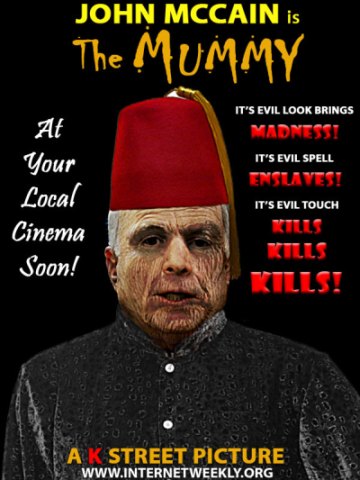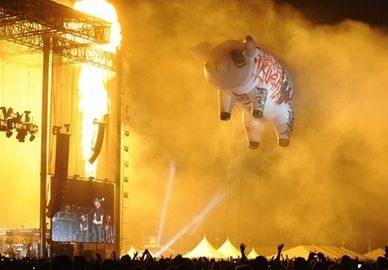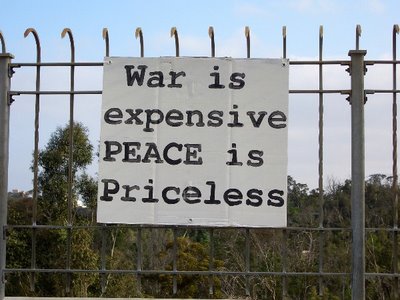
THE DRUG CONVICTION QUESTION AND FEDERAL STUDENT FINANCIAL AID
The SPEAKER pro tempore. Under a previous order of the House, the gentlewoman from New York (Ms. Clarke) is recognized for 5 minutes.
MS. YVETTE D. CLARKE, D-NY: Mr. Speaker, yesterday, both the Washington Post and the New York Times reported that under the Bush administration the military has increasingly granted so-called "conduct waivers" to allow more people with criminal records, including drug convictions, to serve in the Armed Forces. As a matter of fact, conduct waivers granted for felonies and other crimes constitute the majority of all waivers, about 60 percent for the Army, and 75 percent for the Marine Corps.
It is important to note that the vast majority of such convictions stem from juvenile offenses, but at the same time, a provision of the Higher Education Act, which Congress is currently in the process of reauthorizing, bars young people with drug convictions from receiving Federal financial aid to go to college. I find it absolutely alarming that the Bush administration seems to think that youth who are prone to youthful indiscretions and get into trouble with drug use are, on the one hand, not worthy of Federal support to obtain a college education, but on the other hand, are perfectly fit to go and to fight the war in Iraq and Afghanistan.
Because of what many have termed the "Drug War Draft," countless students with minor drug convictions are turned away from the university financial aid office only to be funneled across the street to the military recruiting office. While there is absolutely nothing wrong with giving young people with past drug convictions an opportunity to redeem themselves in service to our country by joining the armed services, it is a moral outrage that current law blocks redemption through educational opportunities to these same individuals.
When asked about the conduct waivers, the Army's Operations Chief Lieutenant General James Thurman stated, "You've got to give people a opportunity to serve." Well, I thoroughly agree with the general, people should be able to contribute to this society in whatever way they best can, whether by enlisting in the military or by enrolling in school and obtaining the skills needed to become productive members of our workforce, our communities, and by extension, our Nation.
 Web site Ecobites details how to cook with the power of the sun with your own DIY solar cooker. In a nutshell, the author rounded up a bit of plywood and aluminum foil to create a reflective parabolic surface capable of focusing the heat of the sun to the cooking surface—another great idea to add to the list of unconventional heat/fire-starting methods.
Web site Ecobites details how to cook with the power of the sun with your own DIY solar cooker. In a nutshell, the author rounded up a bit of plywood and aluminum foil to create a reflective parabolic surface capable of focusing the heat of the sun to the cooking surface—another great idea to add to the list of unconventional heat/fire-starting methods.
That's the message from a couple of analytical energy industry trackers, both of whom, based on the surging oil prices, see considerably more pain at the pump than most drivers realize.
Gasoline nationally is in an accelerated upswing, having jumped to $3.58 a gallon from $3.50 in just the past week. In some parts of the country, including New York City and the West Coast, gas is already sporting a price tag above $4 a gallon. There was a pray-in at a Chevron station in San Francisco on Friday led by a minister asking God for cheaper gas, and an Arco gas station in San Mateo, Calif., has already raised its price to a sky-high $4.62.
- more -

A giant inflatable pig scrawled with the words 'Don't Be Led To The Slaughter' floats over the crowd during the third and final day of the Coachella Valley Music and Arts Festival in Indio, Calif., Sunday, April 27, 2008.
Supreme Court Endorses Voter ID
In a 6-3 decision, the Supreme Court ruled yesterday in Crawford v. Marion County Election Board that "states may require voters to present photo identification before casting ballots, upholding "an Indiana state law that requires voters to show a current government-sponsored photo ID." The law is generally regarded as the strictest in the nationbecause it "requires a voter to present a photograph as part of an unexpired document issued either by Indiana or the federal government." In most cases, such a requirement "can be satisfied only by a current driver's license or a passport," which critics "say discourages voting among the elderly and the poor." The lead opinion, written by Justice John Paul Stevens, argued that Indiana has a "valid interest in protecting 'the integrity and reliability of the electoral process." However, "the case contained 'no evidence' of the type of voter fraud the law was ostensibly devised to detect and deter." Writing in dissent, Justice David Souter "said that for those on whom the law had an impact, the burden was 'serious' and the state had failed to justify it." Though the ruling leaves "the door open to future lawsuits" that provide more evidence of discouragement and disenfranchisement, critics of voter ID laws worry "that a more likely outcome than successful lawsuits would be the spread of measures that would keep some legitimate would-be voters from the polls." Yesterday's decision "is not the end of the story on voter ID," said Wendy Weiser, Deputy Director of the Democracy Program at the Brennan Center for Justice. "Now it's up to legislators and courts" in the states to decide "if they are going to follow Indiana's lead" or "if they're going to protect the right to vote for all Americans."
SPREADING THROUGH THE STATES: Voting experts believe that "far from settling the debate over voter identification," the court's ruling "is likely to lead to more laws and litigation." "The court's opinion is likely to perform the same function for the photo ID debate as the Pennsylvania primary did for the Democratic presidential nomination -- hardening positions while doing little if anything to illuminate a path to resolving the conflict," says Doug Chapin, director of the Pew Center on the States. Currently, seven states require photo ID to vote, and another 18 mandate non-photo ID. This year alone, at least 10 states have considered photo ID measures, while "lawmakers in at least four states may seek to pass stricter regulations in the next year or so." The court's ruling in the Indiana case reignites debates in states that recently ruled on voter ID laws. The Texas Senate rejected a photo ID requirement in 2007, but now, "the Republican-controlled Legislature will probably be recalled to work on a new ID measure," according to voting experts. The Missouri Supreme Court struck down an ID law in 2006, but now, "Missouri lawmakers, who are in session, are likely to be encouraged in an effort to put the question on the ballot."
A PROBLEM THAT HARDLY EXISTS: In his dissenting opinion, Souter noted that Indiana adopted its excessively restrictive voter ID law "without a shred of evidence that in-person voter impersonation is a problem in the state, much less a crisis." In fact, the evidence cited by Stevens in his lead opinion is so thin that he was forced to go back to the era of Boss Tweed -- 140 years ago -- "to describe the corrosive effects of widespread fraud at polling places." Of the 38 cases of voter fraud the Justice Department prosecuted between 2002 and 2005, 14 were thrown out. In fact, due to a lack of credible studies to back up their allegations of voter fraud, conservatives have been forced to establish a front group led by the general counsel of the Bush-Cheney 2004 campaign to create such reports. Despite the lack of evidence that voter fraud is a problem, the court's ruling places "virtually all the burden of proof on plaintiffs seeking to argue that laws illegally restrict their voting rights," which experts say "makes it much tougher for voting rights groups to prevail in court."
- more -

 I get a lot of emails in my Federal Reserve inbox from ordinary people like you saying "I am about to lose my house. Do something!"
I get a lot of emails in my Federal Reserve inbox from ordinary people like you saying "I am about to lose my house. Do something!"
Why is that my fault? Did I tell you to listen to the mortgage broker when he said to pick a number between one and a million and he would write it down as your annual income?
If you go to the Federal Reserve website you will see that our job is to "conduct the nation's monetary policy" and "provide left-handed pinch-hitting power off the bench." I made up that last one to see if you were paying attention. That's the problem -- what we do is so boring nobody gives a flying fuck at a rolling donut until there's an auctioneer on their front lawn.
That's why we use a Ouija board at the Fed.
- more -
More LADWP Doublespeak as Green Path North Survey Markers are Removed

On April 26, the Sierra Club led a scenic tour and hike of the Big Morongo Area of Critical Environmental Concern (ACEC) with the intent of learning more about a serious threat to the desert posed by the Los Angeles Department of Water & Power's (LADWP's) proposed Green Path North (GPN) power line project. The hiking group, while dazzled by the spring beauty of this remote area of protected land, was also surprised to find that LADWP survey markers, put in place by the utility along its preferred route for Green Path North, have been scrupulously removed.
Exactly one month ago, on March 26, LADWP CEO and General Manager David Nahai had spoken with CBS 2 News of Palm Springs regarding the explosive controversy that has erupted over the markers installed on both private and public lands. In that interview Nahai said, "Survey markers were put down as a result of the requirements of BLM and were there to establish boundaries of wilderness areas in order to avoid them."
Nahai's March statement, seemingly calculated to allay the fears of citizens in affected desert communities, is fraught with inaccuracies. The truth is the Bureau of Land Management (BLM) did not require the markers, and the majority of markers had been placed far from, rather than on the boundaries of, areas designated as wilderness (although in some cases, appallingly deep within environmentally sensitive, protected lands).
- more -
Seventeen hours after the tires of my Air China jet settled comfortably onto the runway at Beijing International Airport, I was sitting at the National Health Federations place in the 40th Session of the Codex Committee on Food Additives (CCFA) week-long meeting at the Asia Hotel in downtown Beijing on Monday morning, April 21st. The weather had not cooperated as it rained incessantly, making available taxis as scarce as condom dispensers in the Vatican. Nor did it help that I could not speak a word of Mandarin Chinese; English, French, and bad German can only get you so far, even in this international city. But, I made it, sliding into NHF's seat in time to hear CCFA Chairman Dr. Junshi Chen's opening remarks.

The NHF is the only Codex-accredited health-freedom organization with the right to attend Codex committee meetings such as this one. In fact, although the NHF has for years been attending many other Codex committee and commission meetings - in Germany, Canada, France, Italy, Switzerland, Norway, and Thailand - this CCFA meeting was the first for us.
In his opening remarks, the Chairman proudly told us that 65 countries and 13 INGOs (International Non-Governmental Organizations), totaling 262 registered delegates, were in attendance. I could see that the NHF was the only consumer organization in attendance. The rest of the room was filled with government officials, bureaucratic functionaries, and diverse industry representatives. Strange, no other consumer groups were in sight - I was alone in a sea of government-industry group hugs.
Why We Fight
As we have stressed for years, even decades, the artificial sweeteners Aspartame, Neotame, and Sucralose are dangerous food additives that have been shown to harm health. All three have caused adverse events in consumers and are best avoided. Yet, this Committee has seen fit to advance these three substances along the path to approval. Once approved as Codex food additives, these artificial sweeteners would then be legally adoptable virtually worldwide.
You see, what is not well known - and certainly not well publicized - is the fact that the developing countries of the World are adopting into their own national regulations Codex standards hot off the press. In fact, some of these countries are so eager to adopt Codex food standards that they are not even waiting until the Codex Alimentarius Commission itself approves and adopts the standards - they are adopting the draft Codex standards! That is how desperate they are for these standards. Many of these countries are actually required to adopt Codex standards.
So, as soon as these food-additive standards are approved - maybe even before - they will be pressed into national service throughout the World. Codex has a multiplier effect previously unseen on this planet.
- more -
Wis. parents who prayed as diabetic daughter died charged
Family and friends had urged Dale and Leilani Neumann to get help for their daughter, but the father considered the illness "a test of faith" and the mother never considered taking the girl to the doctor because she thought her daughter was under a "spiritual attack," the criminal complaint said.
"It is very surprising, shocking that she wasn't allowed medical intervention," Marathon County District Attorney Jill Falstad said. "Her death could have been prevented."
- more -

Don’t blow it. Do not blow this.
You’ve practiced all week, you can open this case with your eyes closed. But keep your eyes open when the time comes. Don’t get fancy.
11. Whew. O.K., not me. Good.
11 and 8 are so lucky. They don’t even have to worry whether they’re holding their cases right side up.
How should I play it if I get called? Do I do the old slow-open? I love that one. Nailed it in my tryout. Open it a crack, give it a peek and make an upset face. Then open it all the way and let them know it was actually a good choice. The audience always likes that one.
25. That was close.
But then again there’s something to be said for the quick-open. Boom! Right away let them know what’s in the case. I think the player appreciates that. After all, it is about the player.
What the heck is up with Howie’s soul patch?
- more -
April 28 (Bloomberg) -- Former World Bank President James Wolfensohn said he's ``pessimistic'' on the outlook for financial markets and predicted losses from the global credit turmoil may climb to $1 trillion.
``I'm more pessimistic than optimistic,'' Wolfensohn, 74, said an interview today in London. ``That doesn't necessarily mean a crash, but it means we're not through the woods yet. There are continued dangers.''
U.S. Treasury Undersecretary Robert Steel forecast last week that tighter credit conditions ``will take a while to work through.'' Banks worldwide have reported more than $309 billion of writedowns and credit losses caused by the U.S. subprime collapse and the seizure in credit markets.
``It does seem to be a major adjustment on any level,'' Wolfensohn said, after addressing the European Pensions and Savings Summit 2008. ``There may be a $1,000 billion worth of losses in it somewhere.'' He said he ``cannot recall anything similar, certainly in the last 30 to 40 years that I've worked.''
- more -
BAGHDAD, Iraq About 50 leaders representing a variety of Iraqi political blocs took to Baghdad's Sadr City on Sunday, a stronghold of fiery religious leader Muqtada al Sadr, to protest the U.S.-led siege of that area.
The leaders promised to work together with Sadrists to remove insurgents and weapons in the area. But they also had six other demands of the government, including that it immediately suspend military activity in the city, supply basic services to residents and prioritize peaceful solutions over military conflicts.
"Whatever point the crisis reaches we will keep our efforts to put an end to it," said Ahmed Radhi, a member of the Iraqi Accordance Front, the largest Sunni Muslim bloc. Radhi said the leaders formed a committee to meet with Prime Minister Nouri al Maliki to solve problems plaguing Sadr City.
- more -
 NEW YORK (Reuters) - U.S. newspaper circulation fell 3.6 percent in the latest set of figures released by an industry group on Monday, reflecting a migration of readers to the Internet and publishers' efforts to streamline their businesses.
NEW YORK (Reuters) - U.S. newspaper circulation fell 3.6 percent in the latest set of figures released by an industry group on Monday, reflecting a migration of readers to the Internet and publishers' efforts to streamline their businesses.
Weekday paid circulation at many of the top 25 U.S. papers fell, though some papers, including Gannett Co Inc's USA Today and News Corp's Wall Street Journal, reported gains of less than 1 percent.
Weekday circulation at The New York Times fell 3.85 percent while Tribune Co's Los Angeles Times reported a drop of 5.13 percent.
- more -











No comments:
Post a Comment